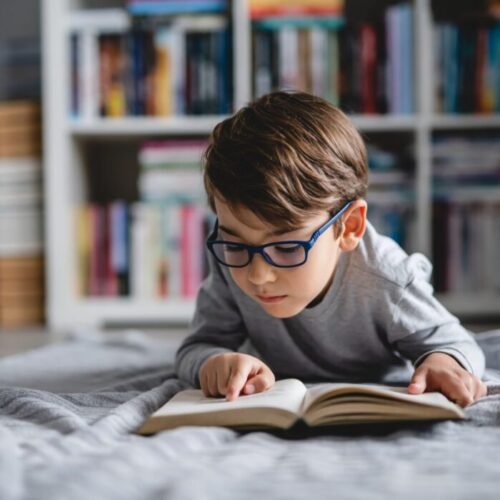Can’t Cuddle a Kindle
How Are Children Reading in the Digital Age?

With schools and nurseries taking pride in ‘an iPad for every child’ education and parents hearing less and less about libraries, which used to top star school facility lists, communities are growing concerned over the way children are reading and interacting with literature.
Teaching children how to use technology in a positive way may be imperative given the demands they would face later in life. However, can kindles, iPads and tablets replace books? Does grabbing a screen and tapping away even come close to page-turning excitement?
The good ol’ days
“There was a teacher who would wander out to supervise playtime in the school playground, hugging a book to her chest. She would say: ‘I’ve got such a lovely story here. Don’t you want to know what it is?’ and then, eyes merry and bright, she would tease by just showing a tiny part of the cover – a quick flash or a small corner,” says Zandra Johnson, director of Fairytale Furniture Ltd. which produces a range of character-based children’s chairs each with a story book to inspire imaginative play.
“I know of many pleasures to owning or reading a book, quite apart from exploring and enjoying its contents. The pleasure of the titles, some so enticing and intriguing, as tantalising as a riddle. Also, the design of the cover, the tactile pleasure of holding the book in your hand feeling the texture of the cover, the thickness of the paper and the beauty of the neat rows of type covering each page,” Johnson adds.
The pleasure of holding a book and flipping through its pages may, however, appeal to the older generations more. As a parent or grandparent, settling with a child on lap to read together, to share a book where you both hold and turn the pages back and forth is such a joy. Can you really replicate that by looking at the small tablet of an eBook?
The science behind it all
With the advent of technological alternatives to traditional reading, kindles, tablets, eReaders and eBooks have become popular. Our children have significant tendencies to use them as an alternative to the paper book, but will these have an impact on their future and the way they learn?
“Recent studies have revealed reading from kindles or tablets can lead to lower levels of sleepiness in comparison with reading from a paper book,” says Ahmed Al Ka’abi, special education teacher and ABA therapist at the American Center for Special Abilities (ACSA).
Early studies have also found that interactive media, such as eBooks and learn-to-read applications, can be useful in teaching vocabulary and reading comprehension, but only in children who are of a preschool-age or older.
“Unfortunately, these devices may replace hands-on activities, which are important for the development of sensory motor and visual-motor skills necessary for the learning and application of math and science. This is because when they’re using touchscreens, they’re not building up the muscles needed for writing,” adds Al Ka’abi.
Striking the balance
A teacher or parent should be present to assist the child in grasping the overall concepts so they don’t get stuck on the exciting graphics and fast pace of a digitised reading program. As for the paper book, it has extra advantages including its relative mobility and the fact that it doesn’t depend on electricity, which means it can be used anywhere.
For some, whatever our children prefer to read on, as long as they get to read, it’s a win. For others, traditional is the way to go. While paper books may still hold their benefits, keeping up with technology means that our children may occasionally need their digital reads. Also, have you ever tried snatching an iPad from of a toddler’s hands?











Comments